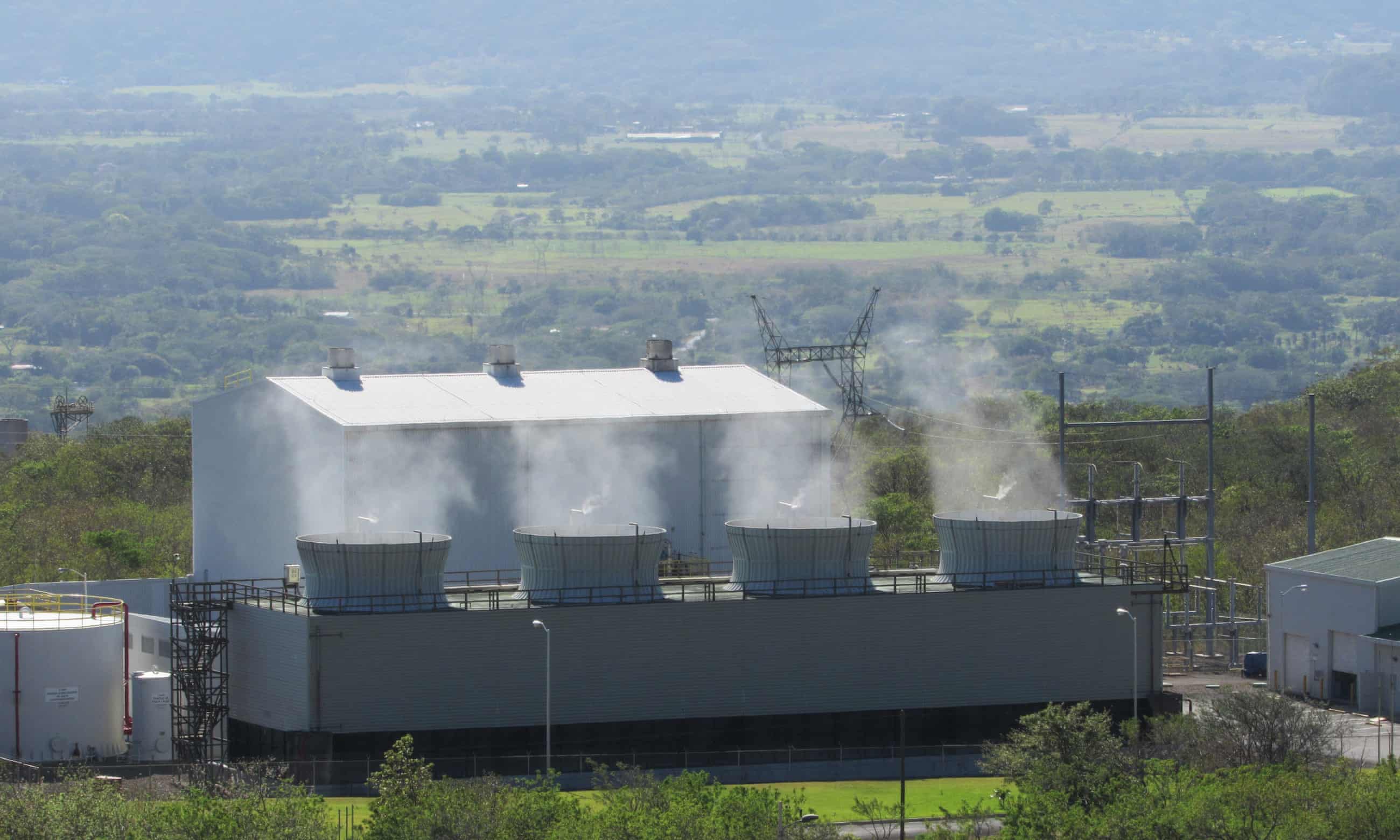Latin America only uses 5% of its natural heat resources, but it is still a small industry and lacks incentives
 |
| A geothermal plant near Miravalles volcano in Costa Rica. Photograph: Fabíola Ortiz |
In total, it’s estimated that Latin America uses no more than 5% of its geothermal potential of 300 terawatt-hour per year, according to reports released by the Inter-American Development Bank (IADB) and the World Bank. Geothermal currently represents a small portion (less than 1%) of the energy matrix of Latin America. The global falling trend of oil prices and increasing climate concerns on carbon emissions raises the question of how countries should clean their electrical power systems in the future.
This renewable source could play a significant role in energy security in the region, says Luis Carlos Gutiérrez-Negrín, former president of the Mexican Geothermal Association. “It emits very low levels of greenhouse gas and is the least CO2 equivalent emitter into the atmosphere (compared with coal and natural gas power plants). If the reservoirs are properly managed, they could last over 100 years,” he says.
Scientists and authorities agree that this energy is suitable for supplying base-load power, something that renewable sources are not always the best at, because wind and sun is not constant, for example.